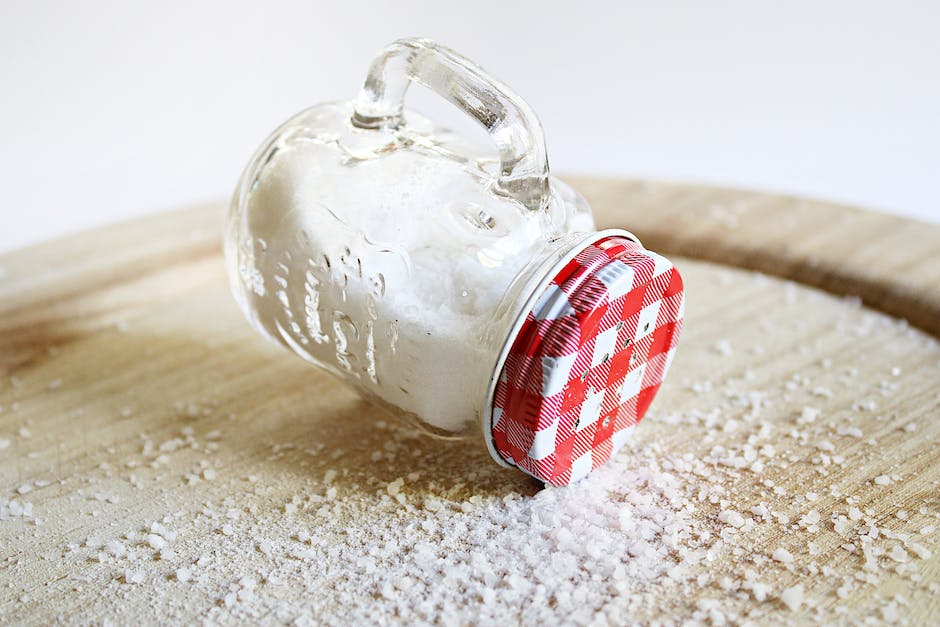Unveiling the Truth: Celtic Sea Salt Side Effects Explored
Salt is a staple in kitchens worldwide, and Celtic sea salt has gained popularity as a natural alternative to processed table salt. But as with any dietary choice, it’s crucial to understand the potential impacts on your health. In this comprehensive guide, we’ll delve into the side effects of Celtic sea salt, ensuring you’re well-informed about your seasoning selections.
Introduction: A Pinch of Caution with Your Salt
Celtic sea salt, often lauded for its mineral content and artisanal harvesting methods, has become a favorite among health-conscious individuals. However, even the most natural products can have side effects, and it’s essential to consider these when making dietary decisions. This article promises to provide a thorough examination of Celtic sea salt’s potential drawbacks, helping you to season your food without compromising your well-being.
What Is Celtic Sea Salt?
The Origins and Composition
Before we dive into the side effects, let’s understand what Celtic sea salt is. Harvested traditionally along the coastal regions of France, this salt is known for its grayish hue, a result of the clay-lined salt ponds where it’s collected. Rich in minerals and lower in sodium compared to regular table salt, it’s often considered a healthier option.
The Nutritional Profile
- Mineral Richness: Contains trace amounts of minerals like magnesium, calcium, and potassium.
- Lower Sodium Content: May have slightly less sodium than regular table salt.
- Natural Harvesting: Free from additives and anti-caking agents found in table salt.
Potential Side Effects of Celtic Sea Salt
Sodium Intake and Health Risks
The Impact on Blood Pressure
High sodium intake is associated with increased blood pressure, which can lead to cardiovascular diseases. While Celtic sea salt might be lower in sodium, it’s still crucial to use it in moderation.
The Risk for Heart Disease
Excessive salt consumption, regardless of the type, can contribute to heart disease. It’s important to balance the intake of Celtic sea salt with other heart-healthy habits.
Mineral Imbalance Concerns
Overconsumption of Minerals
While the additional minerals in Celtic sea salt are beneficial, too much of certain minerals can lead to imbalances and health issues.
Interactions with Medications
Some minerals in Celtic sea salt may interact with medications, so it’s essential to consult with a healthcare provider if you’re on prescription drugs.
Commonly Asked Questions About Celtic Sea Salt
Can Celtic Sea Salt Lead to Dehydration?
The Role of Sodium in Hydration
Sodium plays a crucial role in maintaining fluid balance. However, excessive consumption of Celtic sea salt can disrupt this balance and potentially lead to dehydration.
Signs of Dehydration
It’s important to recognize symptoms such as dry mouth, fatigue, and dizziness, which may indicate dehydration from high salt intake.
Is Celtic Sea Salt Safe for Everyone?
Considerations for Specific Populations
While many can enjoy Celtic sea salt without issues, individuals with certain health conditions, such as kidney disease or hypertension, should exercise caution.
Pediatric and Geriatric Populations
The needs of children and older adults differ, and they may be more sensitive to the effects of sodium. Tailoring intake to these populations is key.
How to Use Celtic Sea Salt Safely
Moderation Is Key
The adage “everything in moderation” applies to Celtic sea salt. Using it sparingly can help mitigate potential side effects.
Pairing with a Balanced Diet
Incorporating a variety of nutrient-rich foods can offset any imbalances caused by salt consumption.
Conclusion: Seasoning with Sense
Celtic sea salt can be a flavorful and mineral-rich addition to your diet when used responsibly. By understanding and managing its side effects, you can enjoy the benefits without overindulging. Remember to consult with healthcare professionals if you have specific health concerns, and always strive for a balanced and informed approach to your dietary choices.


